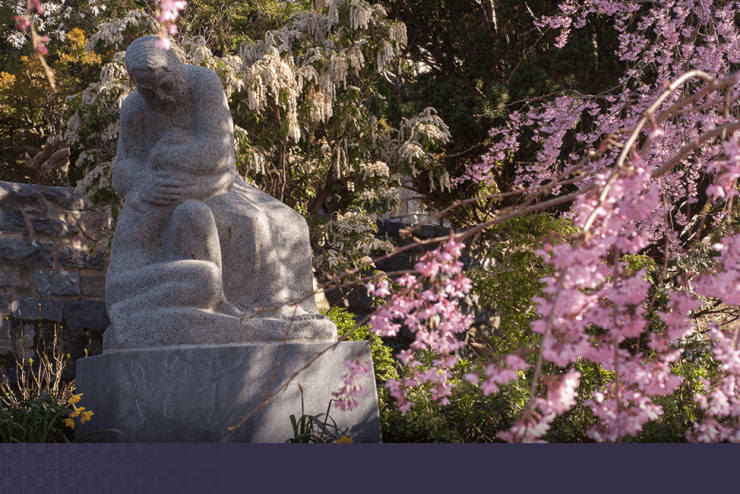The Rev. Patrick Keyser

Exodus 32:7-14
The Lord said to Moses, “Go down at once! Your people, whom you brought up out of the land of Egypt, have acted perversely; they have been quick to turn aside from the way that I commanded them; they have cast for themselves an image of a calf, and have worshiped it and sacrificed to it, and said, ‘These are your gods, O Israel, who brought you up out of the land of Egypt!’” The Lord said to Moses, “I have seen this people, how stiff-necked they are. Now let me alone, so that my wrath may burn hot against them and I may consume them; and of you I will make a great nation.”
But Moses implored the Lord his God, and said, “O Lord, why does your wrath burn hot against your people, whom you brought out of the land of Egypt with great power and with a mighty hand? Why should the Egyptians say, ‘It was with evil intent that he brought them out to kill them in the mountains, and to consume them from the face of the earth’? Turn from your fierce wrath; change your mind and do not bring disaster on your people. Remember Abraham, Isaac, and Israel, your servants, how you swore to them by your own self, saying to them, ‘I will multiply your descendants like the stars of heaven, and all this land that I have promised I will give to your descendants, and they shall inherit it forever.’” And the Lord changed his mind about the disaster that he planned to bring on his people.
The book of Exodus tells one of the greatest stories in all of Scripture— God’s liberation of the Israelites from slavery in Egypt. There is much more to the story than just the Israelites leaving Egypt, though. It continues by recounting the beginnings of the journey of the Israelites in the wilderness. One of the most memorable stories from this wilderness journey is found in Exodus 32. Moses led the people to Mount Sinai and then went up the mountain himself to receive the law from God. He remained there in communion with God for some time, and with each passing day the Israelites grew more and more restless and impatient. Would he actually come back? Who would provide for them? Would they just die right there in the wilderness?
In their restlessness the Israelites looked elsewhere for deliverance and protection. They brought together their gold and made from it a golden calf, proclaiming, ‘these are your gods, O Israel, who brought you up out of the land of Egypt!’ (Exodus 32:8). How quickly they had forgotten that it was God, not this work of their own hands, that had delivered them from slavery, led them across the Red Sea on dry land, provided for them manna in the wilderness, and promised to lead them to a land of abundance overflowing with milk and honey. The Israelites had forgotten.
In the midst of our own wilderness journey, we too face the temptation to forget just as the Israelites did. Our collective attention is increasingly focused on the pandemic and the ripple effects it has on nearly every aspect of our lives in the present moment. Our daily rhythm of life has been completely disrupted. Our sense of fear and despair seems to grow each day as we hear that things will likely get worse before they get better. These are the times when we cannot allow ourselves to forget. As we wander through the unknown of this wilderness, we must always remember the goodness and faithfulness of God. To remember in this way must be active. So hold on to the good things in life, both past memories and present blessings. Spend time in the beauty of creation when possible. Cherish relationships. Be in touch with family and friends and tell them you love them. Read and reflect on Scripture, especially the stories that tell of God’s enduring provision and care. Say your prayers. And trust that God is with us every step of the way.
Faithfully,
Patrick+
O God, with you is the well of life, and in your light we see light: Quench our thirst with living water, and flood our darkened minds with heavenly light; through Jesus Christ our Lord, who lives and reigns with you and the Holy Spirit, one God, for ever and ever. Amen.
(Lesser Feasts and Fasts 2006)